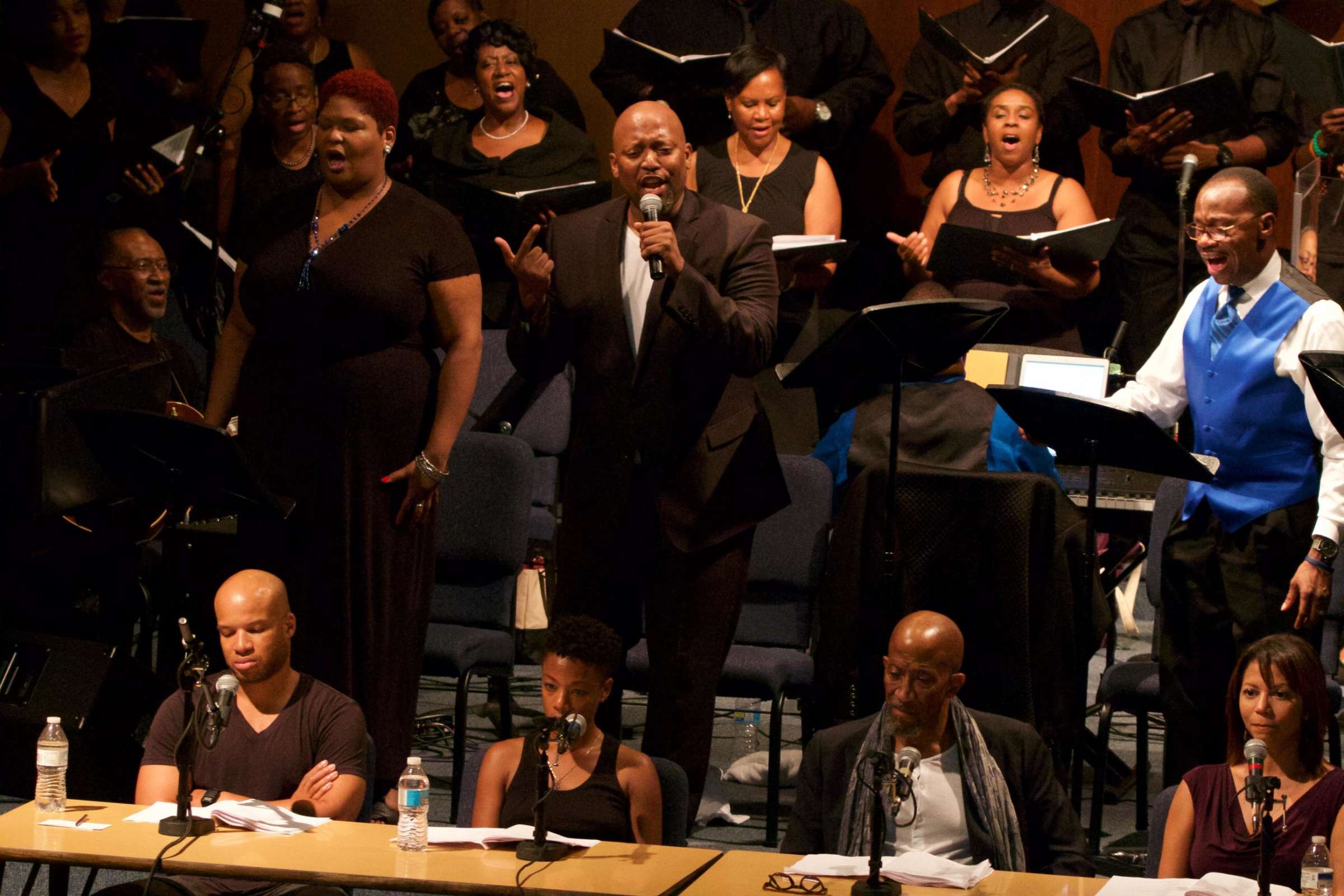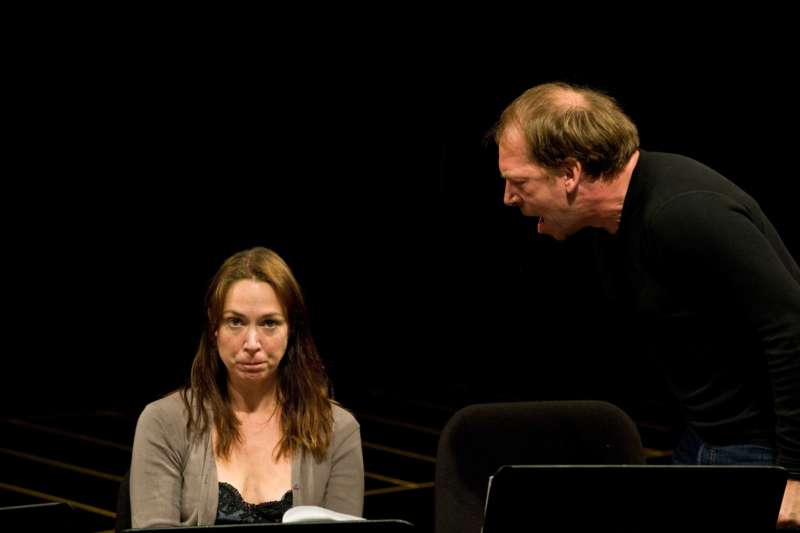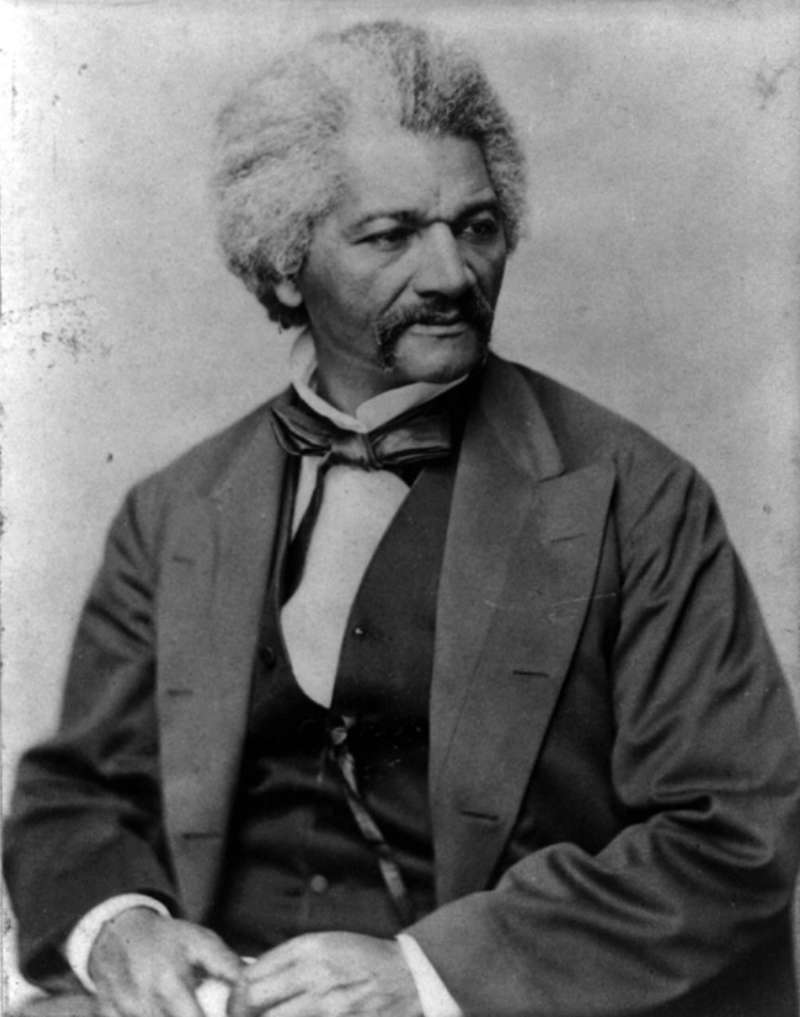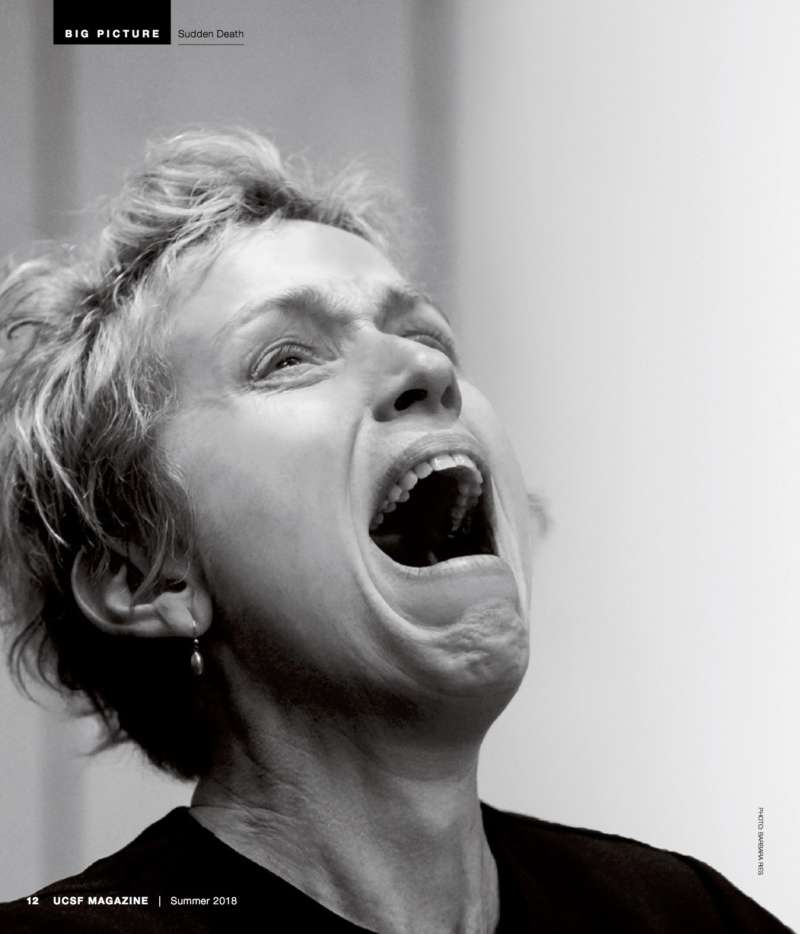Open to Public / Antigone in Ferguson at Harlem Stage
Antigone in Ferguson
Translated and Directed by Bryan Doerries
Music Composed By Phil Woodmore
Free Event
Tue, Oct 09.2018

Antigone in Ferguson is a groundbreaking project, developed by Theater of War Productions, which fuses dramatic readings by acclaimed actors of Sophocles’ Antigone with live choral music performed by a diverse choir, including police officers, activists, youth, teachers, and concerned citizens from Ferguson, Missouri and New York City, culminating in powerful, healing discussions about race and social justice. Antigone in Ferguson was conceived in the wake of Michael Brown’s death in 2014, through a collaboration between Theater of War Productions and community members from Ferguson, MO, and premiered at Normandy High School, Michael Brown’s alma mater, in September of 2016.
It is the gospel chorus...reacting to confrontations among these characters, that viscerally lifts the play into timelessness.
About the play
-
Antigone by Sophocles
Sophocles’ Antigone is an ancient play about a teenage girl who wishes to bury her brother, Polyneices, who recently died in a brutal civil war. Creon, the new, untested king, has ruled that Polyneices’ body must remain above the earth, and that anyone who breaks this law will be put to death. Antigone openly and intentionally defies his edict, covering her brother’s body with dirt and publicly declaring her allegiance to a higher law, one that transcends that of the state—the law of love. Creon is then forced, by his own political rhetoric, and the by fragile social order that he has barely begun to establish since the civil war, to make an example of his niece, by sentencing her to death. In the process of following through with his own decree, Creon loses everything. At its core, Antigone is a play about what happens when personal conviction and state law clash, raising the question: When everyone is right (or feels justified), how do we avert the violence that will inevitably take place?
Explore Projects
-
 Domestic ViolenceMedea
Domestic ViolenceMedeaMedea timelessly depicts how scorned passion can lead to revenge and, sometimes, unthinkable violence. This project, which premiered at the Brooklyn Academy of Music in June 2016, delves into under-discussed mental health issues that affect women and their families.
-
 RacismFrederick Douglass
RacismFrederick DouglassFrederick Douglass is a project that presents dramatic readings of Douglass' speeches by professional actors as a catalyst for powerful dialogue about racism, inequality, civil rights, education, and the legal system with the objective of fostering compassion, understanding, and positive action.
-
 Caregiving & DeathEnd of Life
Caregiving & DeathEnd of LifeEnd of Life presents readings of ancient Greek plays in public settings and medical communities as a catalyst for facilitated discussions about challenges faced by patients, families, and health professionals today around end of life care. This unique, participatory event is intended to promote powerful, open discussion among diverse communities - public and professional - fostering compassion, cooperation, and understanding about living with chronic suffering and the mortality we all share.